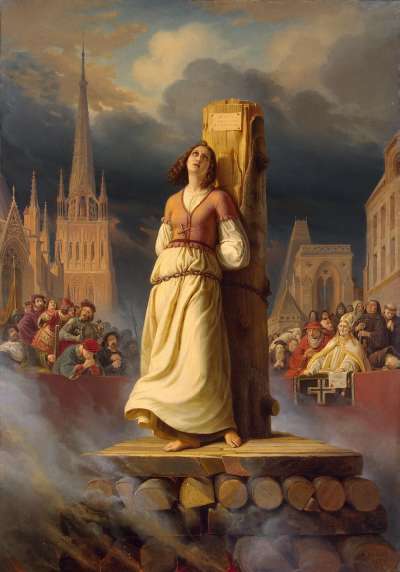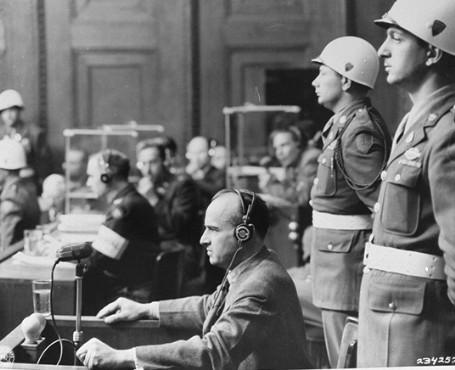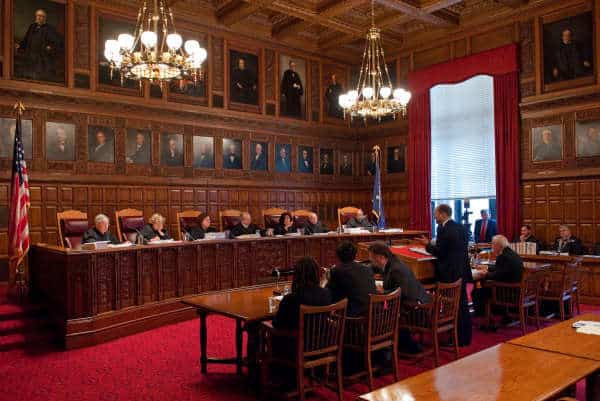There are fascinating parallels and connections between political trials and transitional justice. Both are seen to serve other ends than merely punishing individuals who committed a crime. Often they serve to legitimize a new or existing regime. The authorities may employ trials to criminalize political opponents. Sometimes the accused attempts to use the trial as platform to challenge the status quo and send out a political message. Often criminal trials and truth commissions seek to educate people by producing a historical narrative and ascribe responsibility for past violence.

Political trials have captured people’s imagination since antiquity. The trials against Socrates, who was found guilty of corrupting Athens’ youth in 399 BC, and Jesus of Nazareth are still used as examples of the use of judicial means to political ends. Other famous political trials are the trials against Joan of Arc in 1431, Charles I of England in 1649 and Louis XVI in 1792. More recent examples include the Dreyfus affair and the Moscow show trials during the 1930s.
The Moscow trials were a particularly blatant abuse of courts to eliminate political opponents. They exemplify both the criminalization of political rivals and criminal trials with a predetermined outcome – the conviction of the accused.
This elimination of uncertainty, which is a defining element of a trial, is an extreme case, in which the legal only thinly disguises the political.
Political justice is by no means limited to authoritarian regimes. In his seminal study, Otto Kirchheimer (1961) argues that political trials regularly occur in liberal democracies where courts are deemed independent from political influence and abiding by the rule of law. In contrast to show trials such as the ones conducted at Stalin’s behest political trials in liberal democracies tend to have an element of uncertainty. Due process and fair trial rights give the accused a ‘fighting chance’ (Bilsky 2001: 11713) although the Guantanamo Military Commissions are a borderline case between show trial and a trial respecting the rights of the accused.
The trials against war criminals and perpetrators of the holocaust such as the Nuremberg Trials and the Eichmann-trial have also been criticized as political trials. Their use as educational and legitimizing tools has been criticized by observers such as Arendt (1963) for drawing attention away from the question of individual guilt. This critique has also been levelled at the more recent international criminal tribunals such as the Yugoslavia-Tribunal in the Hague and the Rwanda-Tribunal in Arusha (Drumbl 2007, Osiel 1999, Koskenniemi 2002, Simpson 2007).

From the perspective of legal anthropology, law cannot be dissociated from its ‘context’. Law is always an instantiation of social, cultural and political dynamics and studied as such.
It is not law and culture but law as culture (cf. Rosen 2008) or social phenomenon. From this angle all truth commissions, criminal tribunals and other transitional justice mechanism are political but there are also attempts to employ these institutions to serve political ends in a more specific sense: to neutralize political opponents, to legitimize a government or to deny its legitimacy, an instrument to gain or curtailing political power or influence (Kirchheimer 1961).
During my fieldwork in Sierra Leone I could observe both the politics of international criminal justice at the Special Court for Sierra Leone and the attempts to use criminal trials for political ends in Kirchheimer’s sense (Anders 2014). The trials heard at the Special Court clearly served the goal of strengthening the legitimacy of the democratically elected government. The small number of individuals who were charged with war crimes and crimes against humanity underlined the symbolical nature of the Special Court for Sierra Leone.
In spite of its political nature the representatives of the Special Court went to great lengths to ensure respect for fair trial rights of the accused and emphasizing the independence of the judges. This respect for the rule of law, however, did not extend to the national legal system.
Whilst the leaders of the various armed factions stood trial in the courtrooms of the Special Court for Sierra Leone hundreds of former members of the two main rebel groups were held in detention under a state of emergency at Pademba Road Maximum Security Prison, just a few hundred metres distance from the compound of the Special Court. After keeping many of them for years without charge the Sierra Leonean authorities eventually tried more than 80 of the former combatants for treason, murder and conspiracy. Most of these judgments were overturned on appeal for lack of evidence but by the time the men were released in 2006 they had fulfilled their purpose of neutralizing these former rebels during a volatile transitional period. It could be argued that the detention of hundreds of former rebels and the trials at the national courts also played an important role in the country’s transition. Considering them in relation to the Special Court for Sierra Leone and the national truth commission reveals a much more ambiguous and complex picture.
References:
Anders, Gerhard (2014) ‘Transitional Justice, States of Emergency and Business as Usual in Sierra Leone’, Development and Change 45(3): 524-542.
Arendt, Hannah (1963) Eichmann in Jerusalem: A Report on the Banality of Evil. New York: Viking Press.
Bilsky, Leora (2001) ‘Political Trials’, in Neil J. Smelser and Paul Baltes (eds) International Encyclopedia of the Social and Behavioural Sciences, pp. 11712-11717. Oxford: Elsevier.
Drumbl, Mark A. (2007) Atrocity, Punishment, and International Law. Cambridge: Cambridge University Press.
Kircheimer, Otto (1961) Political Justice: The Use of Legal Procedure for Political Ends. Princeton, NJ: Princeton University Press.
Koskenniemi, Martti (2002) ‘Between Impunity and Show Trials’, Max Planck Yearbook of United Nations Law 2002: 1-35.
Osiel, Mark (1999) Mass Atrocity, Collective Memory and the Law. New Brunswick: Transaction Publishers.
Rosen, Lawrence (2008) Law as Culture: An Invitation. Princeton, NJ: Princeton University Press.
Simpson, Gerry J. (2007) Law, War and Crime: War Crimes, Trials and the Reinvention of International Law. Cambridge: Polity.





